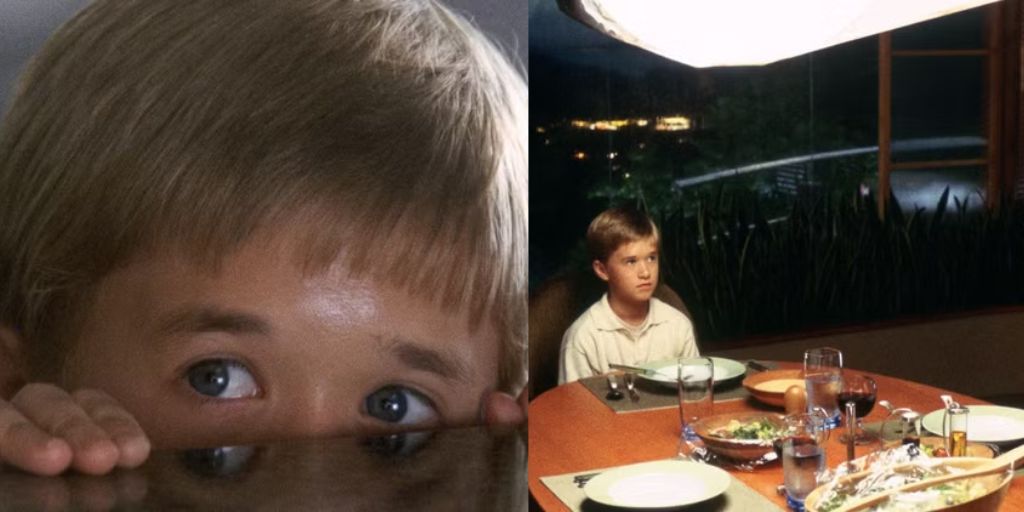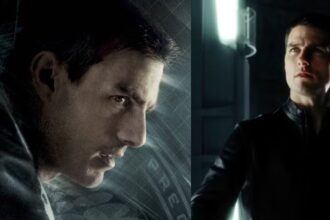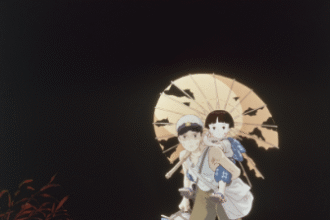
The movie concludes on an extraordinary note that leaves many viewers reflecting deeply on what it means to love and be loved.
After David, the humanoid robot boy designed to emulate human feelings, endures numerous trials in his search for acceptance and connection, the story shifts into a dreamlike future where advanced beings bring a kind of closure to his journey. This ending is less about action and more about profound themes involving memory, love, and what it truly means to exist.
David’s ultimate goal throughout the film is to become “real” so that he can regain the love of his human mother, Monica. Despite his mechanical origin, David’s emotional experience feels raw and authentic.
The ending reveals how far this desire takes him, highlighting a powerful intersection between artificial intelligence and human emotion. The story does not provide a traditional, neat closure but invites viewers to ponder the boundaries between man and machine.
Also Read: Poetry Ending Explained: A Poem for Lost Voices
The Last Day: A Meeting with the Future
In the final scenes, the movie jumps thousands of years ahead beyond the decline of humanity. Earth has become a world inhabited by advanced robots, descendants of David’s creators.
These highly evolved beings discover David and Monica’s fossilized remains, and with technology that surpasses current human understanding, they reconstruct Monica for one perfect day. This artificial recreation of Monica is a pivotal moment in the film’s conclusion. It serves both as a metaphor for human memory and the longing embedded in David’s programming.
During this day, Monica and David share a flawless experience of maternal love and connection. However, Monica’s recreated existence has a time limit, marking the impermanence of this reunion.
The advanced beings observe quietly, recognizing the emotional pinnacle of David’s existence to be loved unconditionally by the one who gave him life or created him. This scenario reveals not only David’s fulfillment but also hints at the limitations and possibilities of technology coexisting with human feelings.
Themes Embodied in the Ending
The ending reflects several deeply philosophical ideas. One of the main themes is the desire for acceptance and identity. David’s quest to become a real symbolizes a universal longing to be seen and loved for who one is, regardless of origins or imperfections.
His transformation from mere machine to a being capable of love and pain questions the nature of humanity itself. The story suggests that the essence of being human is less about biology and more about emotional connection and empathy.
Another key theme centers on loss and memory. The recreation of Monica emphasizes how humans cherish memories and relationships, even after death. The advanced robots’ ability to bring those memories back to life touches on humankind’s hope for immortality through remembrance. This moment bridges the divide between organic life and artificial life, merging past and future.
Storyline Reflection: A Journey Like No Other
The narrative challenges viewers by mixing science fiction with fairy-tale elements. David is not just a robot; he is cast as a child wandering through a mysterious world in search of his lost mother and identity. The ending reveals that his journey was never about becoming flesh and blood but about touching the hearts of others and discovering unconditional love.
The emotional climax in the closing scenes contrasts with the coldness often associated with robots in popular culture. Instead, it shows vulnerability and a beautiful innocence. This is where the film stands apart: it humanizes artificial intelligence while simultaneously questioning what defines “human.”
The Role of the Advanced Beings
These futuristic beings play a silent yet crucial role in the resolution. They represent a future where technology and consciousness have evolved beyond current comprehension.
Their choice to give David his one perfect day with Monica is an act of compassion, showing that empathy might reach beyond human life forms. This insight invites reflection on the ethical and emotional implications of artificial life in the future.
By ending with a scene of reconstructed love, the story leaves a lasting message: true connection transcends physical form or time. David’s wish to be loved as a child, despite being an AI, is honored in the end, offering a hopeful perspective on the role technology might play in preserving human values.
Symbolism in the Closing Moments
The movie’s last moments are filled with rich symbolism. The timeless garden-like setting in which Monica and David reunite represents an Eden-like paradise, suggesting a return to innocence and peace.

This illusion of paradise is a stark contrast to the harsh, dystopian world David endured beforehand. It symbolizes the ultimate reward for his perseverance and unyielding hope.
The moment when Monica asks David if he is happy and he responds affirmatively resonates deeply. It signifies the completion of David’s emotional journey and validates his existence beyond circuitry and programming. This scene highlights that the essence of life can be found in brief moments of heartfelt connection.
Audience Takeaways and Interpretations
Many viewers interpret the ending differently, reflecting its complexity. Some see it as bittersweet that David finally obtains the love he craved, but only temporarily, underlining life’s fragility. Others view it as uplifting, a reminder that love can transcend even death and artificial limitations.
The film also challenges traditional ideas of what consciousness means. David’s humanity is found not in biology but in his experiences and emotional growth. In this way, the ending posits a future where humans and machines might share common ground in feelings and relationships world.
The ending of A.I. Artificial Intelligence offers a touching and thought-provoking closure to a story about love, loss, and identity. It reveals the profound lengths to which artificial life might go to experience human emotions and the complex bond between creator and creation.
By blending futuristic technology with intensely human desires, the film invites audiences to reconsider the essence of life and what it means to be real. David’s journey may end, but it leaves an enduring impression about the power of love that transcends all boundaries.
Also Read: Coco Ending Explained: Memory Keeps Love Alive








